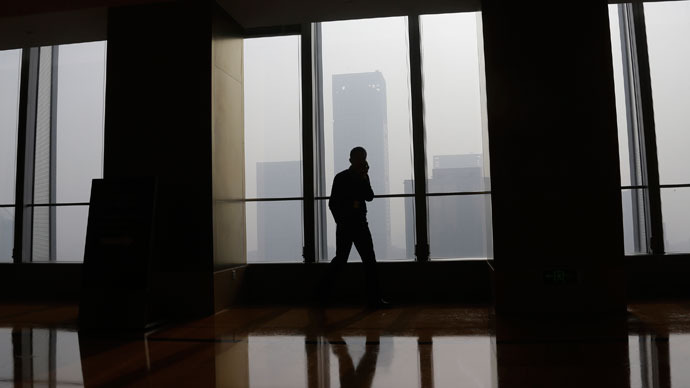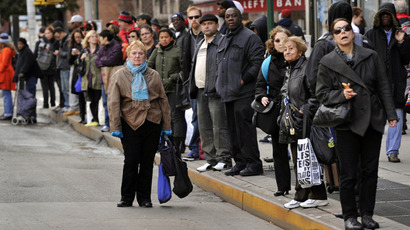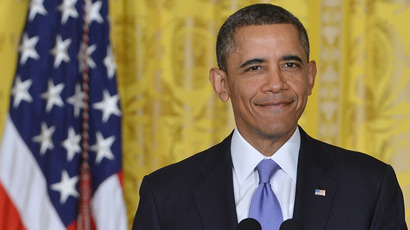Confirmed: NSA collection of millions of phone records 'renewal of ongoing practice'

The chairwoman of the US Senate Intelligence committee has said that the state has been collecting the telephone records of millions of customers since 2006, and the order is a three-month renewal of a continuing practice.
The collection of records was “on an ongoing daily basis,”
beginning on April 25, 2013 and ending July 19, 2013, Dianne
Feinstein, a Democratic Senator from California confirmed to
reporters on Capitol Hill on Thursday. However, the practice may
have been habitual for seven years prior to its exposure.
"As far as I know, this is the exact three-month renewal of
what has been the case for the past seven years. This renewal is
carried out by the [foreign intelligence surveillance] court
under the business records section of the Patriot Act. Therefore,
it is lawful. It has been briefed to Congress," she told
reporters.
The evolving breach of confidential information brought the US
Director of National Intelligence, James Clapper, to issue an
official acknowledgment, though he pointed to key information
missing from widening media coverage.
"The Government is prohibited
from indiscriminately sifting through the telephony metadata
acquired under the program. All information that is acquired
under this program is subject to strict, court-imposed
restrictions on review and handling," and data is reviewed
after establishing "reasonable
suspicion," said Clapper via statement.
"Discussing programs like this
publicly will have an impact on the behavior of our adversaries
and make it more difficult for us to understand their
intentions," added Clapper.
It was further revealed that the NSA's monitoring of Americans
includes not just Verizon, but AT&T and Sprint Nextel
networks as well -- including emails and Web searches --
according to a report by the Wall Street Journal. The agency is
also alleged with cataloging credit-card transactions, according
to sources familiar with the agency's program.
Congress members were fully briefed and aware of the US’s
intelligence gathering program, which included the collection of
telephone records from Verizon, U.S. Attorney General Eric Holder
confirmed to Reuters on Thursday.
The top secret order required Verizon, one of the largest telecom
agencies in the US, to provide both the FBI and the NSA
information on all telephone calls made through its systems, both
domestically and to foreign countries. A copy was obtained by the
Guardian and published on Wednesday.
According to a copy of the order, Verizon is required to disclose
the numbers of both parties during a call, as well as location,
call duration, and other unique data on an "ongoing, daily
basis.” Meaning that, regardless of whether an individual is
suspected of or linked to any crime, the data of all Verizon
customers is currently being delivered in bulk to the
intelligence agency.
Verizon did not confirm the existence of the top secret order. In
a memo sent to employees on Thursday, they stated that they were
forbidden "from revealing the order's existence."
Verizon says order in Guardian "compels Verizon to respond," and "Forbids Verizon from revealing the order's existence."
— Eamon Javers (@EamonJavers) June 6, 2013
The court order expressively forbade Verizon from disclosing the
existence of any US government request for the company’s customer
records, according to the original Guardian exclusive.
As to the authority claimed by the government via this order,
that is specifically cited to fall under the “business records”
provision of the PATRIOT Act of 2001, which was granted a
four-year extension by President Obama in May of 2011.
The practice may also be more widespread among communications
data companies than initially believed: CNBC contacted Sprint, a
global provider of internet and communications services. The
company told CNBC on Thursday that it had no comment on whether
it may have received a similar FISA court order.
“If they have them for telecom companies, they probably have
similar orders for internet companies,” Alex Abdo, an
attorney with the ACLU's national security project told NBC’s
Rachel Maddow.
Former NSA specialists have previously confirmed this to RT.
“The FBI has access to the data collected, which is basically
the emails of virtually everybody in the country. All the
congressional members are on the surveillance too, no one is
excluded. So, yes, this can happen to anyone. If they become a
target for whatever reason,” whistleblower and former NSA
crypto-mathematician, William Binney, who served in the agency
for decades, told RT in a 2012 interview.
Republican Senator Mark Kirk of Illinois, who questioned Holder
about the program, aired concern on Thursday that that spy
agencies might have retrieved the phone records of Congress and
the U.S. Supreme Court.
“When government bureaucrats are sloppy, they usually are really
sloppy,” Kirk said.
The top secret order had been issued only one week following the
tracking down of the suspected Boston Marathon Bombings
perpetrators. Case investigators had examined calls made to and
from their phones, in addition to one of their laptops.
One official told Reuters that the controversial surveillance
order exposed on Wednesday was not necessarily issued in reaction
to the April 15 bombing. However, a further official
did mention to the agency that the degree of data collection had
been stepped up in the aftermath of Boston.














